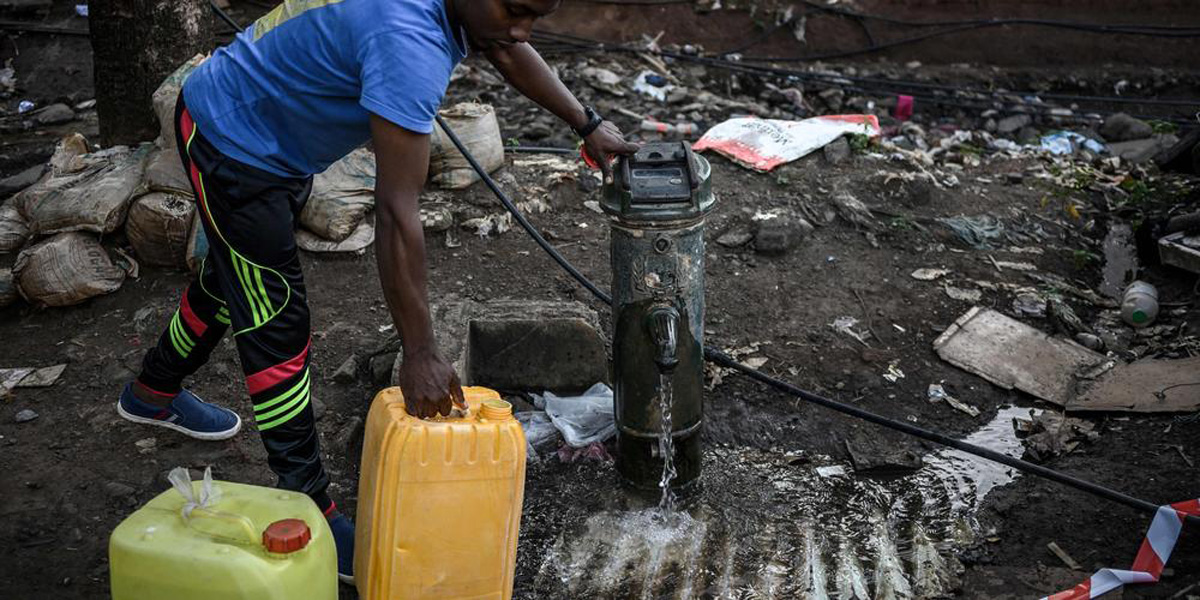
- Cholera cases are multiplying on the Mayotte island of the Indian Ocean, which continues to depend on the French State. Poor water management is often the cause of the spread of this disease and people in the area are trying to cope with the severe water crisis. The feeling of being treated as second-class citizens increases in Mayotte and unfortunately gains the tip of the right.

Do not believe that the disease of cholera related to poverty and social misery has disappeared from the French State. If it is missing from Metropolitan France, it is still on the island of Mayotte, which continues to depend on the French State. A 3-year-old boy from Koungou died of cholera, the French Health Agency reported on 8 May. On March 19, a case of cholera was identified on the island and is the first death of the 58 cases recorded since then.
"The emergence and development of the cholera epidemic derive from the high concentrations of the population, related to poor environmental hygiene," can be read on the website of the French Health Agency. In this situation there is also the French State, and the development of the disease has once again revealed the lack of governance led by Paris: it considers citizens secondary to the overseas departments and regions that remain under its dependence. In addition to the island of Mayotte, cholera cases have also occurred in Guyana. That is the feeling that locals have and have evidence in their daily lives: they have a minimum wage 20% lower than in metropolitan France, they have lower social support, the decisions that are made from Paris, such as the responses to the water crisis, have a unemployment rate of 34%, when that of metropolitan France is 7.5%, etc.
Another test is the poor response to the development of cholera disease. You have to come to Mayotte from Paris on 9 May, the Minister of Health, Frédéric Valletoux, and you will see the answers he will give you. As for the health service, in 2019 there were 54 nurses, 36 specialized health personnel and five dentists for 100,000 citizens, compared to 139, 177 and 64 respectively in Metropolitan France.
Water: irritant
"There is a strong link between cholera transmission and drinking water and poor access to sanitation facilities," says the World Health Organization. In Mayott they have serious problems with drinking water and had to spend last summer in harsh conditions. It should be noted that 80% of the water used is superficial (from streams, from natural reservoirs...) and that due to the climate emergency this resource is decreasing (if until recently the rainy season lasted from November to March, today they only have from January to March).
As a solution, in two out of three days the water was cut off, and currently they still have the tap exhausted three days. Its poor sanitation system means that drinking water is not available to all citizens. The most affected are immigrants from Africa who survive accumulated in the slums.
Conclusion: increased xenophobia
Basically, instead of focusing on the basis of the problem, migrants are the cause of the misery in which many indigenous people live, reflecting the demonstrations and blockades of February. Although they denounce the "abandonment of France", they remedy the fight against migrants. In the name of "security", the far-right group Forces Vives led mass mobilizations to demand greater border control and the expulsion of people without papers. The first force occurred in the second round of the 2022 presidency, Marine Le Pen, with 59% of the votes.
The French Government is responding in the same vein. The French police carried out the Wuambushu operation in April last year, with the aim of destroying 1,000 shanty towns and expelling 10,000 people without papers. The French Government reported in February on a measure profoundly denounced by the human rights structures: President Emmanuel Macron intends to pursue a constitutional reform that eliminates the right to land for undocumented children created in Mayotte, the right to French citizenship if created in France. In other words, not all the rights guaranteed by the French State are valid in their overseas territories.

On Monday, action was also taken against the immigration offices, which associate cholera cases with the presence of immigrants.
According to data from the INSEE statistics institute of 2022, the population residing in Mayotte is 300,000 inhabitants, half of whom are immigrants, which would be 30%. Mayotte is located in the heart of the Indian Ocean, and for the African countries affected by war and famine, the French State, 300 kilometres away, has a hopeful destination.